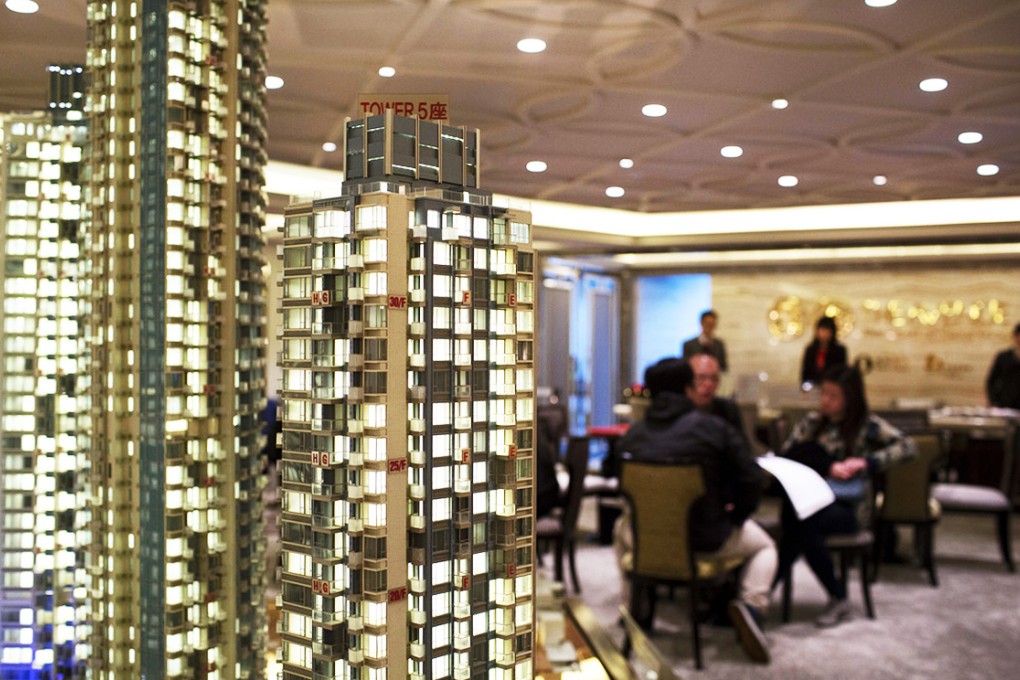Hongkongers left flat by ever-rising apartment prices, survey says
Survey says residents fear prices will keep rising despite cooling measures

Nine in 10 Hongkongers believe apartment prices are too high and more than a third fear they will go even higher.
While it comes as little surprise, the numbers were confirmed in a university poll where barely one in 10 of the 738 people polled expected prices to fall.
Surveyor Charles Chan Chiu-kwok said flats were already too expensive and he saw little room for further increases. He also said he saw little likelihood of government market-cooling measures being withdrawn soon.
The study - conducted by Chinese University's Hong Kong Institute of Asia-Pacific Studies last week - found 90.4 per cent of the people polled felt current apartment prices were too high, compared to 6.6 per cent who saw the level as right and 0.4 per cent who said property was cheap.

Of the 37.3 per cent, or 275 people, who believed flat prices would soar in the coming year, a majority of 54.2 per cent forecast a rise of between 5 and 10 per cent. A fifth expected a rise of as much as 10 to 20 per cent, while 2.2 per cent predicted that the rise could be 30 per cent or even higher.